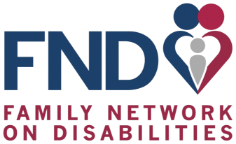INformation Hub
Active Implementation Hub
Active Implementation Hub
Useful to Parent Centers in SSIP work and school reform
Interested in implementation science? Want to learn what it’s all about? Visit the Active Implementation Hub and use its online modules. The modules are short (45-60 minute) and designed to be self-paced or blended with pre-service and in-service training. They include content, activities, and assessments designed to promote the knowledge and practice of implementation science and scaling-up.
Visit the Active Implementation Hub at:
http://implementation.fpg.unc.edu/modules-and-lessons
Here’s a list of the modules that are available.
- Module 1: An Overview of Active Implementation
Learn about the five Active Implementation Frameworks and the potential to apply them in your setting. - Module 2: Implementation Drivers
This overview of the Implementation Drivers is designed to help you think about developing and sustaining the infrastructure you need to improve and sustain new instructional practices and behavior supports so that academic and behavioral outcomes improve. - Module 3: Implementation Teams
Implementation Teams support the implementation, sustainability, and scale-up of usable interventions by integrating the use of implementation stages, drivers and improvement cycles. This module is designed to assist new and existing Implementation Teams in actively building capacity and scaling-up programs and innovations. - Module 4: Implementation Stages
This module provides an overview of Implementation Stages. Implementation Stages provide guidance to Teams on their journey to implement selected programs and practices. For applied purposes and illustration, the module uses state and local educational systems as context. - Module 5: Improvement Cycles
Improvement Cycles support the purposeful process of change. Implementation Teams use Improvement Cycles to change on purpose. In this module you will learn about Improvement Cycles and how to begin applying them in your setting. - Module 6: Usable Interventions
Usable Interventions are effective and well‐operationalized. An intervention needs to be teachable, learnable, doable, and readily assessed in practice if it is to be used effectively to reach all students who could benefit. After this module you will be able to describe the criteria that define a usable intervention and understand how Usable Interventions interact with Implementation Drivers. Applied emphasis is placed on using the criteria for implementation action planning. - Module 7: Fidelity Assessment
Fidelity assessment is defined as indicators of doing what is intended. This definition requires a) knowing what is intended, and b) having some way of knowing the extent to which a person did what was intended. Knowing what is intended is the subject of the Module 6 (Usable Intervention). Knowing the extent to which a person did what was intended is the subject of this module.
SOURCE ARTICLE: Center for Parent Information & Resources
Give us a call at (727) 523-1130 or (800) 825-5736 or request a callback by clicking below.
311 South Missouri Ave, Clearwater, FL 33756
(727) 523-1130
(800) 825-5736

